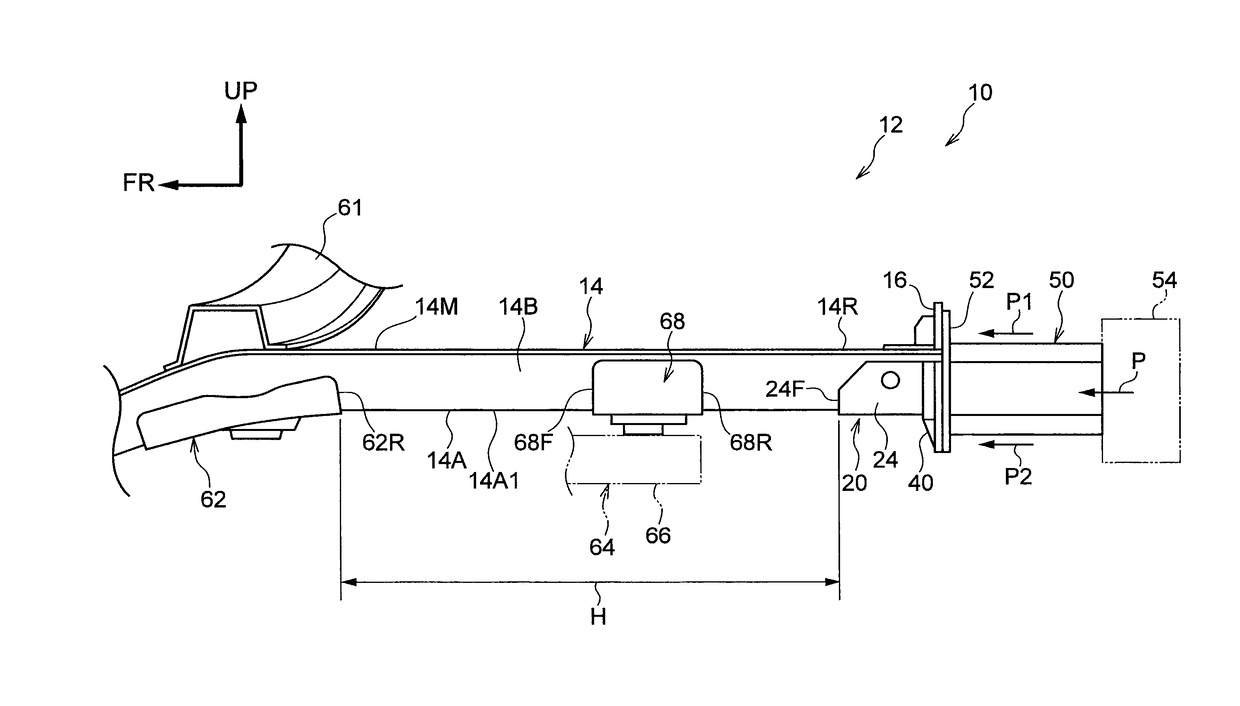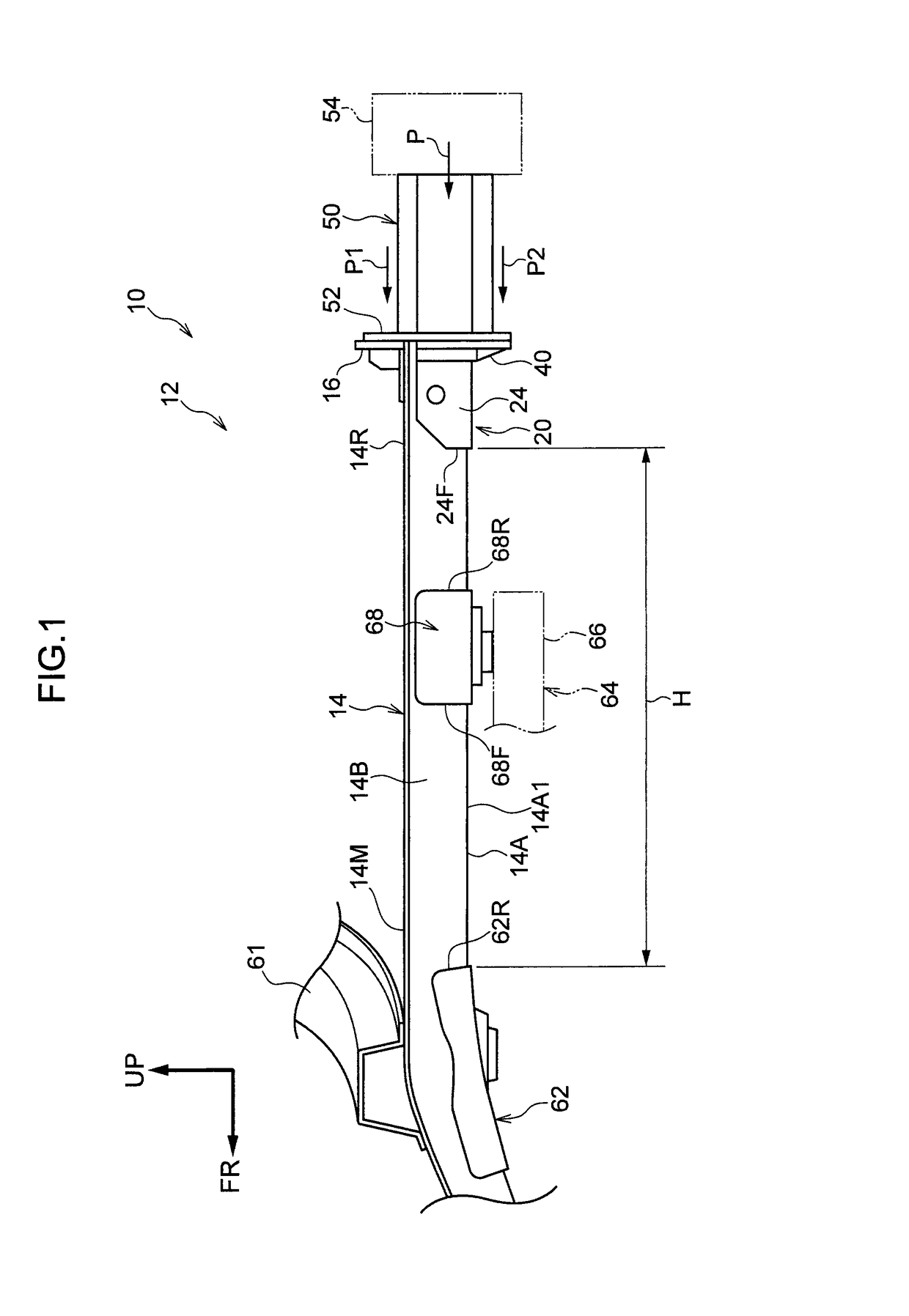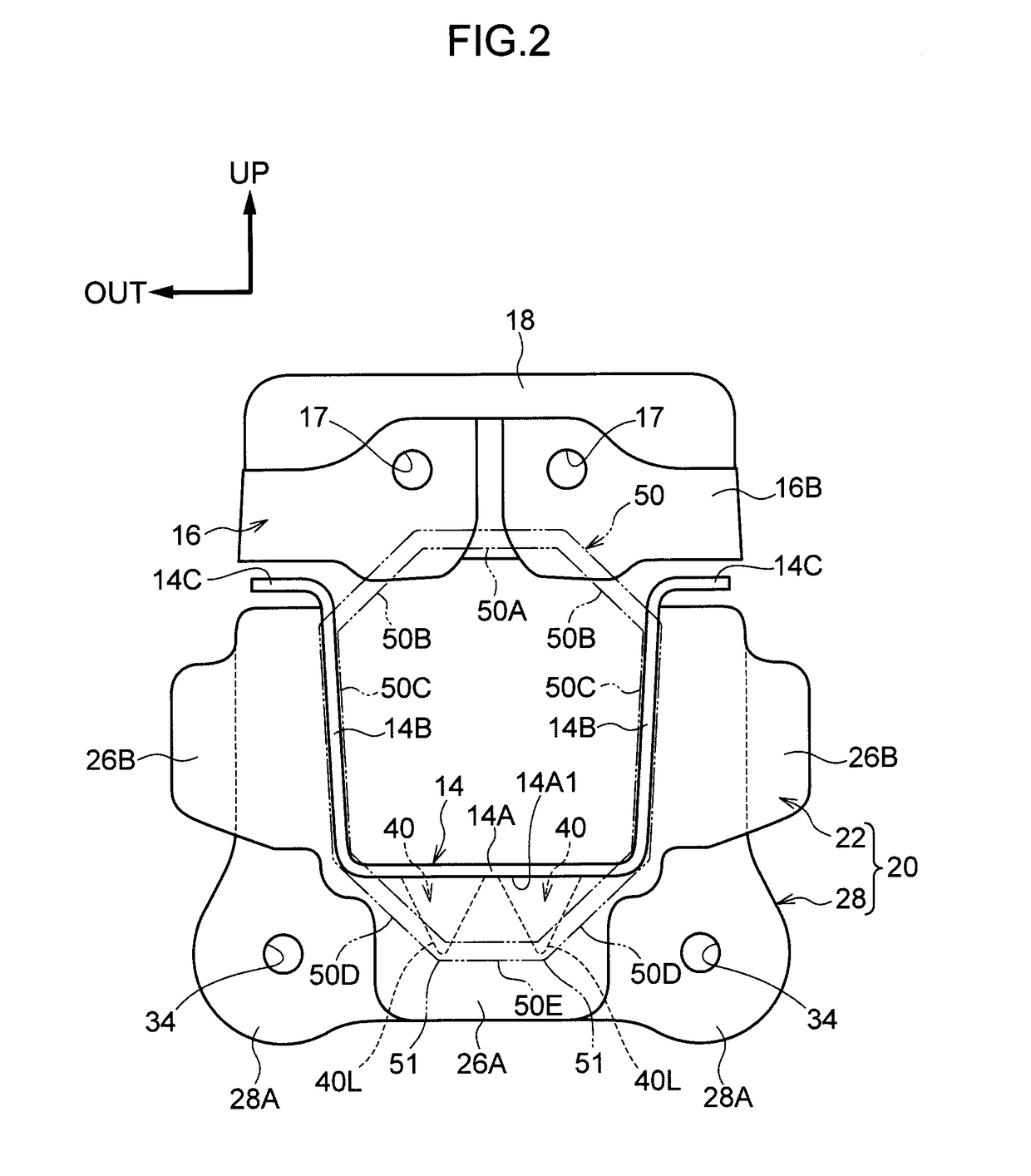Vehicle rear portion structure
a rear portion and vehicle technology, applied in the field of vehicle rear portion structure, can solve the problems of becoming difficult to achieve a standardization of the rear side members in plural types of vehicles, and becoming difficult for the rear end portion of the rear side member to bend in the vehicle up-down direction
- Summary
- Abstract
- Description
- Claims
- Application Information
AI Technical Summary
Benefits of technology
Problems solved by technology
Method used
Image
Examples
Embodiment Construction
[0044]A vehicle rear portion structure pertaining to an embodiment of the present invention will be described below. It should be noted that arrow FR appropriately shown in the drawings indicates a forward direction in the vehicle front-rear direction. Furthermore, arrow UP indicates an upward direction in the vehicle up-down direction. Moreover, arrow OUT indicates an outward direction (a vehicle body left side) in the vehicle width direction. Furthermore, unless otherwise noted, front and rear and up and down in the following description will be understood to mean front and rear in the vehicle front-rear direction and up and down in the vehicle up-down direction.
[0045](Vehicle Rear Portion Structure)
[0046]FIG. 1 shows a vehicle rear portion 12 to which a vehicle rear portion structure 10 pertaining to the present embodiment has been applied. The vehicle rear portion structure 10 is equipped with a pair of rear side members 14, an upper bracket 16, a lower bracket 20, a shock absor...
PUM
 Login to View More
Login to View More Abstract
Description
Claims
Application Information
 Login to View More
Login to View More - R&D
- Intellectual Property
- Life Sciences
- Materials
- Tech Scout
- Unparalleled Data Quality
- Higher Quality Content
- 60% Fewer Hallucinations
Browse by: Latest US Patents, China's latest patents, Technical Efficacy Thesaurus, Application Domain, Technology Topic, Popular Technical Reports.
© 2025 PatSnap. All rights reserved.Legal|Privacy policy|Modern Slavery Act Transparency Statement|Sitemap|About US| Contact US: help@patsnap.com



